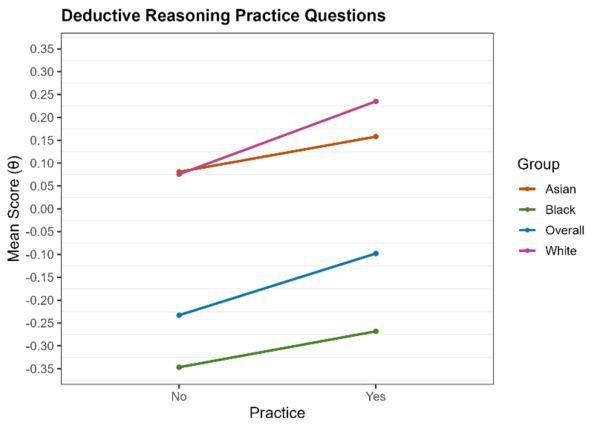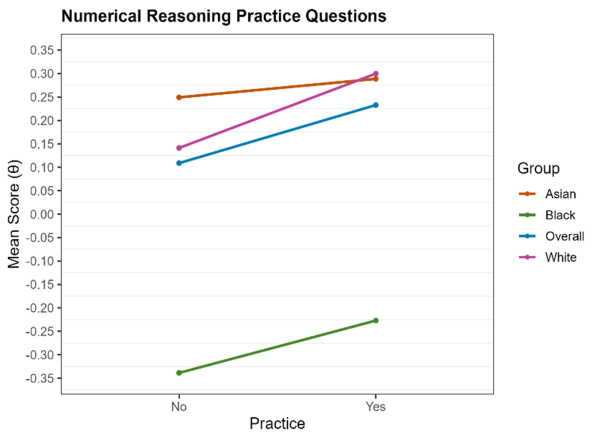Continuing SHL’s Inclusive Assessment Research
SHL’s inclusive research aims to better understand the experience of Black candidates when taking assessments. We share our latest research that helps ensure our assessments are as inclusive as possible for all candidates.
Share
Does Practice Make Perfect?
Earlier this year, SHL presented at the first annual Blacks in I/O Psychology (BIOP) conference in Atlanta, Georgia. At this conference, we presented our findings from a comprehensive research project, where we wanted to better understand the importance of practice when taking assessments. We often hear the phrase “practice makes perfect”, and we wanted to explore this concept further.
Our first study looked to better understand what effect completing sample cognitive ability assessment questions has on performance in the actual assessment. We found that even completing just three to five practice questions had a significant positive impact on test scores. Overall, candidates who attempted the practice questions score 58% higher on deductive reasoning, (see Figure 1), and twice as high on numerical reasoning (see Figure 2) than those who don’t.
Candidates are often unfamiliar with assessments prior to taking them when applying for a job. Practice questions can allow candidates to become more familiar with the types of questions they will see in a real assessment and reduce test anxiety.
Our hope was to show, as has been found in other research¹, that completing practice tests reduced Racial group differences on test scores. Though we found practice has a positive impact on all candidates, we did not see any differential impact of practice on different Racial groups (see Figures 1 and 2).
Figure 1. The impact of taking the practice questions in a Deductive Reasoning assessment for different Racial groups.

Figure 2. The impact of taking the practice questions in a Numerical

We are continuing to further explore the importance of practice in our next study. Our current research project is looking at “enhanced” practice tests that offer more tips, hints, and guidance on how to answer the sample questions. We are also considering the importance of how we phrase instructions, and exploring what impact (if any) this might have on overall test scores, and the candidate’s mindset, when approaching tests.
We hope to replicate and expand upon research that has shown that encouraging and empowering instructions reduce stereotype threat and test anxiety for Women and Black candidates—we hope to share the results of this research at the 2025 BIOP conference.
Our Inclusive Research Doesn’t Stop! Become a Participant
The BHRP is an ongoing project where we take what we learn from our research and other researchers working in this space to both improve SHL processes, and products, and learn which questions to ask next.
In addition to the quantitative research projects we have going on, we are also in the midst of a qualitative research project. Members of the BHRP team are sitting down with Black candidates to interview them on their assessment experiences and get real-time feedback on some of our most commonly used assessments. The goal of this research is to better understand what aspects of our content Black candidates find interesting and engaging, and which aspects they find discouraging or barriers to success.
We are still seeking additional participants for this project, so please contact our BHRP team at research@shl.com if you are interested.
Along with other initiatives such as partnering with the BYP Network, our ‘Lived Experience’ assessment, and our Neurodiversity research, SHL is committed to remaining focused on fairness, accessibility, and inclusion, to help organizations support Diversity, Equity, Inclusion, Belonging, and Accessibility (DEIBA) in their talent programs. Learn more here.
References:
¹Campion, M. C., Campion, E. D., & Campion, M. A. (2019)










